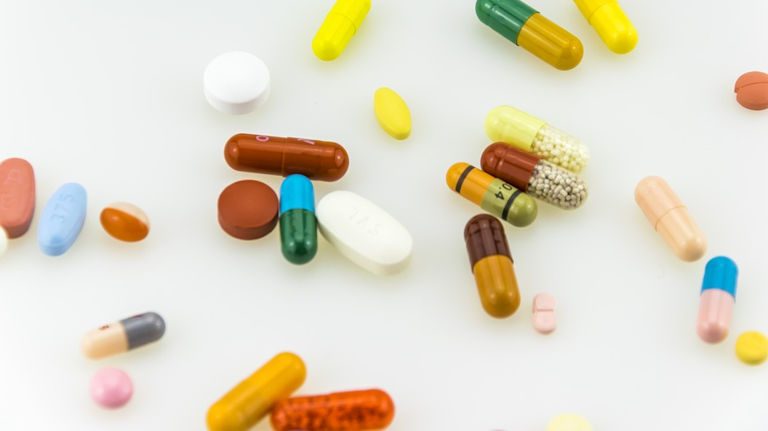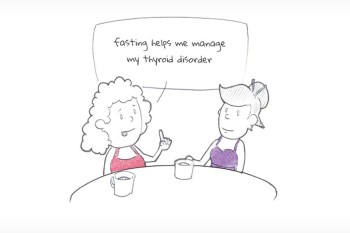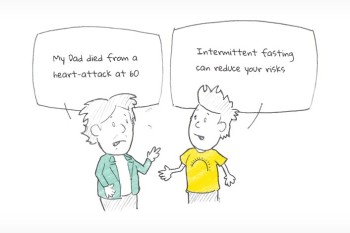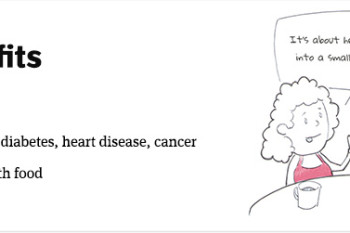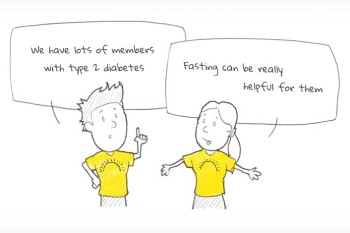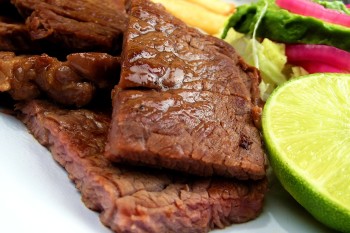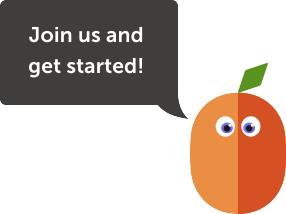If you have a condition that requires medications, you will likely be wondering whether you will need to take any special precautions with intermittent fasting. Most prescription drugs can be taken normally when fasting. Many, if not most, medicines are actually better taken on an empty stomach (e.g., thyroxine, digoxin), with others there is no difference whether they are taken with food or without. Some medicines that need to be taken with food (see below) can be taken with your fast day food without needing to make any changes. If you only need to take a medicine once a day, it is simple to take it with the main fast day meal. Do not be tempted to skip or reduce your medications without consulting with your doctor or pharmacist.
In a few cases special considerations are needed. The information leaflet that comes with your medicines may help you to know whether any precautions are needed when fasting, or you can ask your pharmacist or doctor for advice.
- How fasting might effect your medication
- Medicines that might be affected by fasting
- Medications which should be taken with food
How fasting might effect your medication
There are several ways in which fasting might affect your medications:
-
Changes in the way the medicine is absorbed by the body (some drugs are absorbed faster, some slower when taken without food)
-
Changes in how the medicine is tolerated by the body (such as an increased risk of stomach irritation with aspirin-like drugs)
-
Changes in blood glucose levels (some medicines that tend to lower blood glucose may cause symptoms of low blood sugar when fasting).
Medicines that might be affected by fasting
Anti-inflammatory medicines and pain killers
Aspirin (acetylsalicylic acid) and similar drugs, such as ibuprofen, which are prescribed to control pain and inflammation, have a tendency to irritate the stomach lining and so are best taken with food. By contrast, paracetamol (acetominophen) is best taken on an empty stomach as it is better absorbed.
Corticosteroid/glucocorticoid drugs, such as prednisolone, budesonide, dexamethasone, fludrocortisone, hydrocortisone or prednisone, are powerful anti-inflammatory agents. They should be taken with food as they may irritate the stomach.
Corticosteroids also increase appetite and encourage fat storage while preventing the body from burning fat. Losing or even controlling your weight when taking these drugs can be very problematic. You may find fasting particularly hard to do. In these circumstances, daily shorter fasting combined with low carbohydrate eating may help. However, tempting it may be to reduce your dose, remember that it is very important not to stop or even skip a single dose of corticosteroids. Consult your doctor about changing the dose of your medication.
There are several members of the FastDay community who have managed to lose weight while taking corticosteroids. Please do join our FastDay forum to connect with people who can support you while you are taking corticosteroid drugs.
Diabetes drugs and other drugs that lower blood glucose
Because fasting lowers blood glucose levels, diabetes medications and any drugs that lower blood glucose levels might have a greater effect than expected on blood glucose. If you have diabetes treated by blood glucose lowering agents be aware that you may experience symptoms of hypoglycaemia (such as dizziness, shakiness, sweating, fatigue, going pale, fast pulse or palpitations, tingling lips, blurred vision and confusion). If you do have a such hypoglycaemic event, treat it by eating some carbohydrate, but in future, consider lowering the amount of diabetes drugs you are taking on a fast day. However, you do not need to consider changing the dose of metformin as this medicine does not cause hypoglycaemia.
Learn more about fasting with diabetes
Heart and circulatory system medicines
Warfarin: if you are taking warfarin, you will know that its effects are influenced by many foods and so, while fasting itself may not affect your INR, the lack of foods that you normally eat might do. Please consult with your doctor before starting intermittent fasting if you are taking warfarin, and monitor your INR carefully.
Digoxin is best taken on an empty stomach, as when taken with food it not absorbed so well. If you generally take your digoxin with food, it may be worth changing your routine so that your daily dose is always taken at least an hour before eating.
Blood pressure tablets do not need to be taken with food, however fasting may lower your blood pressure and so, if you are taking antihypertensives, you may experience periods of low blood pressure. You may find you will be able to reduce the dose of your medications with time. Regular monitoring of blood pressure is advisable.
Statins do not need to be taken with food.
Read how fasting can help your heart and circulation
Thyroid medications
Thyroxine is best taken on an empty stomach, as when taken with food it not absorbed so well. If you generally take your thyroxine with food, it may be worth changing your routine so that your daily dose is always taken at least an hour before eating.
Learn about fasting with thyroid disorders
Medications which should be taken with food
Note: this is not a complete list. Please consult with your doctor or pharmacist if you are taking any medicines not in this list or if you have any doubts about taking your medications whilst fasting.
A. acitretin (Neotigason), allopurinol (Zyloprim), atovaquone (Mepron/Malarone, Wellvone), acetylsalicylic acid (Aspirin), amoxicillin
B. baclofen (Lioresal), betametasone, bezafibrate (Bezalip), bromocriptine (Parlodel)
C. cabergoline (Dostinex), clofazimine (Lamprene), carvedilol (Coreg), carbamazepine (Tegretol), chloroquine (Avloclor), cimetidine (Tagamet), cefaclor (Distaclor), cefpodoxime (Orelox, Vantin), cefuroxime (Zinnat), cinnarizine (Arlevert), clarithromycin, colesevelam (Cholestagel), co-amoxiclav (Augmentin)
D. deflazacort (Calcort), dexamethasone, diclofenac (Arthrotec, Dicloflex, Diclomax, Motifene, Voltaren, Voltarol), divalproex sodium (Depakote), domperidone (Motilium)
F. felbamate (Felbatol), fenofibrate (Tricor), ferrous sulphate, fiorinal, fludrocortisone, flurbiprofen, fenoprofen, fexofenadine (Telfast)
G. griseofulvin, glyburide (take with breakfast)
H. hydrocortisone, hydroxychloroquine (Plaquenil)
I. ibuprofen (Brufen), indomethacin, itraconazole (Sporanox), isotretinoin (Roaccutane)
K. ketorolac, ketoprofen, ketotifen (Zaditen)
L. lithium, labetalol (Trandate)
M. mefenamic acid (Ponstan), meloxicam, metronidazole (Flagyl), misoprostol (Cytotec), methanamine, mebendazole, mesalazine, methylprednisolone, metyrapone (Metopirone), montelukast (Singulair)
N. naltrexone, naproxen (Naprosyn), nelfinavir (Viracept), nitrofurantoin (Macrobid), niacin
O. olsalazine
P. paroxetine (Seroxat), perphenazine, pentoxifylline, pergolide, piroxicam (Brexidol, Feldene), pivmecillinam (Selexid), potassium salts (Sando-K), prednisolone, prednisone, procainamide, pyridoxine
R. ritonavir (Norvir), rivaroxaban (Xarelto), ropinrole (Adartrel, Requip)
S. salsalate, saquinavir, sevelamer (Renagel), sodium valproate (Epilim), spironolactone, sulfasalazine, sulfinpyrazone, sulindac
T. ticlopidine, tinidazole (Fasigyn), tolmetin, trazodone, troglitazone
U. ursodeoxycholic acid (Ursofalk)
V. valproic acid (Convulex)

